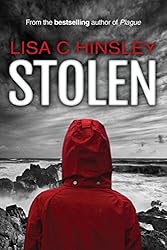A Review Too Deep? Debbie Bennett
Ah – that thorny old subject of book reviews. Our own
Ali Bacon recently covered
this topic, but I’d like to embellish that post, if I may, with some new
information.
I saw this
link on a facebook post the other day. This shows a new type of review
procedure that Amazon is apparently trialling. Now us Brits are often last in
line for anything new on Amazon, but asking around, I found that it’s not the
rumour-factory working overtime and people are indeed being presented with this
new-style option when leaving a book review on Amazon.com.
So this is a whole new can of worms. Readers are being
asked, for example to rate the sexual content of a book:
Seems fair enough, doesn't it? You can let potential readers know whether the book contains sex or not - warn people in advance. And No sexual content seems straightforward enough, I agree. But what is the difference between Some and Explicit? Erotica is expected to have heavy sex scenes, so would a weak erotica novel therefore just be classed as Some sexual content? And what if there's a steamy sex scene in chapter one, and then nothing else? Say it's Explicit and you will annoy readers who are expecting it to be explicit throughout; say it's Some and you will annoy readers who are expecting a more-or-less clean read.
It's the same with the Violence category. You can't please all of the people all of the time, and should we even be trying as we are bound to get it wrong. My idea of graphic is probably very different from yours.
 And what about the Narration category? As writers, we get this totally. But will a reader understand? Or maybe that is what the I don't know choice is for!
And what about the Narration category? As writers, we get this totally. But will a reader understand? Or maybe that is what the I don't know choice is for!
There's a school of thought that says this new review procedure is not for readers at all - that it's simply a means to build more tightly-focused customer data and therefore offer the reader a better list of books they might like to read. Maybe it's never destined to be seen on-screen. But if this is so then how will that work? Let's say I'm looking for a thriller with no sex and no violence (there must be some, right?). I've read this book and it has too much sex and violence for me, so I mark it up accordingly. But how does Amazon know that I'm looking for less sex and violence? The questions merely ask about this book - not it's suitability for my requirements. So even though I'm looking for something light and gentle, will Amazon keep recommending hardcore crime to me?
Let's put this into practice. I've just had a play on Amazon.com, leaving a review for a book I've recently read: Lisa Hinsley's Stolen.
Author's writing: Great. No issues there. Lisa's a talented author and I've read several of her books. She's also a lovely lady.
Is there violence? Now here's the question. What do you define as violence? Without wanting to introduce spoilers, there are one or two scenes that could possibly be described as violent, but then that depends on your tolerance level and what you consider to be violent. But it's not a sweet romance, so I'll have to say Some violence. Other people might say No violence. And what about psychological violence? Or am I just reading too much into this, now? :-)
Is there sexual content? Probably less contentious than violence. It's not romance, so I'd have to say No sexual content. Even though there is - a bit. But not enough to be Some ...
How is the story narrated? First person, though the options are rather ambiguous and some stories could fall into more than one.
And that's all I get. No plot or mood questions. Next is the star rating and the box to write my text in, which I shall go away and do right now.
So what do we reckon? A new review system. Will these answers be seen by customers or just used to stoke the fires of Amazon's algorithms? Watch this space.
www.debbiebennett.co.uk



Comments
And, having reviewed Stolen myself, i agree with your analysis of the difficulties in trying to make it fit within these arbitrary tags,
I will bid on a painting:
* in oils on canvas
* between four and six square foot
* predominantly green in colour
* with secondary colours including yellow and orange
* but no purple
* 4 on the realistic scale (where 0 is Rothko and 10 is a photo)
Yep, that could work.